Search Results
Search
Filter results
Advanced Filters
Your search returned 288 Solutions
-
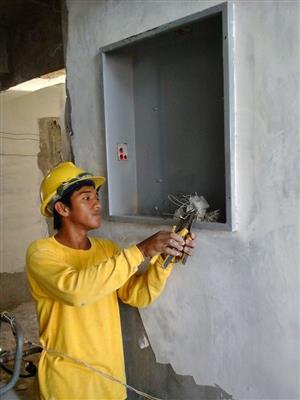
A “sales unit” to connect Technical Vocational Education and Training (TVET) and the business world
To minimize the gap between Technical Vocational Education and Training (TVET) and the job market, Woord en Daad developed a model called Job and Business Services. Like a sales unit JBS provides regular market assessments, coaching and training for students as well as feedback from the job market.
Woord en Daad, Job and Business Services (JBS) model, Philippines -
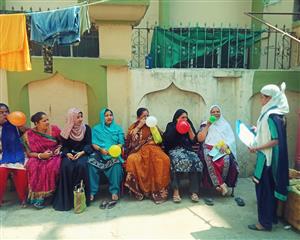
Community-based support services to persons with psychosocial disabilities
‘Seher Urban Community Mental Health and Inclusion’ (UCMHI) is a programme of the Indian Bapu Trust designed to promote independent living for people with psychosocial disabilities residing in urban slum settlements. In 2022 the model has been implemented in additional Indian states.
BAPU TRUST FOR RESEARCH ON MIND AND DISCOURSE, Bapu Trust For Research on Mind & Discourse, India -
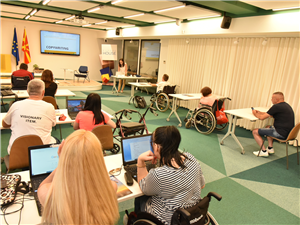
Jobs in digital marketing and social media for people with physical disabilities
In 2021, Brand Solution from North Macedonia launched ‘Best Online Assistant’, an IT platform that offers courses in digital marketing and social media and places job seekers with disabilities in this field. By 2022, 40 people had attended courses, 10 companies were partners, and Brand Solution had expanded to Bulgaria.
Brand Solution LLC, Best Online Assistant, North Macedonia -
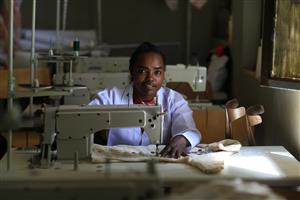
National guideline to make vocational training centres fully accessible
Published in 2019, the guideline is the first document in Ethiopia to set out measures for the equal participation of people with disabilities in "technical and vocational education and training" (TVET). By 2020, more than 30 government institutions have implemented the directive.
Ethiopian Federal TVET Agency, Guideline for inclusion of people with disabilities, Ethiopia -
Standards for physical accessibility
Between 2009 and 2015 seven laws and decrees have been passed in support of persons with disabilities. Law 4.934/13, for example, mandates that all public and private spaces must be accessible to people with disabilities. The private sector is incentivised by fiscal benefits rather than obligations.
Saraki Foundation, Paraguay – Saraki Foundation & USAID – Seven laws improving accessibility standards, Paraguay -
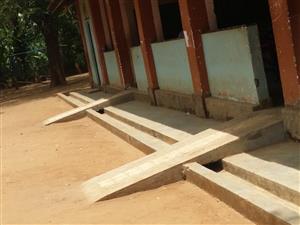
Effectively creating accessible buildings in rural, less developed areas
In 2011 the Uva Provincial Council developed a policy to achieve universal inclusion in this district by 2018. The policy is addressing the gaps in accessibility to the built environment as well as targeting the inclusion of persons with disabilities and older persons in a holistic manner and in a way that is feasible within a rural setting.
Uva Provincial Council, Sri Lanka – Uva Provincial Council, Moneragala – Age Friendly & Disabled Friendly City, Sri Lanka -
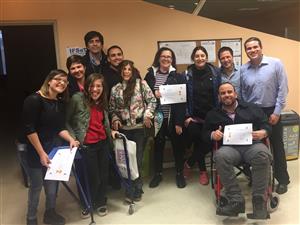
Job portal for persons with disabilities, going international
Incluyeme.com, launched in 2013, is Latin America's first and largest job portal for people with disabilities. It operates in eight countries and has more than 200,000 registered users in 2020. Incluyeme also provides training and services for companies that want to hire people with disabilities.
Incluyeme.com, Job portal for persons with disabilities, Argentina -
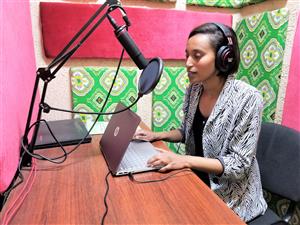
Mobile phone-based information service for disability-related topics
Minch was launched in 2021 by the Ethiopian Center for Disability and Development. The interactive voice-response phone platform provides toll-free audio information or text messages on disability-related topics in the Ethiopian national language. Minch works via cell phone and without the need for an Internet connection.
ECDD - Ethiopian Center for Disability and Development, Minch, Ethiopia -
A school offering free high-quality bilingual education for deaf children
Instituto de la Sordera (Indesor), Chile: NGO providing free education to deaf students, including vocational, primary, and secondary levels. Since 2020, educated about 100 students annually and pioneered 'reverse inclusion' for hearing children.
Bilingual Intercultural Education Project (PEIB), Chile -
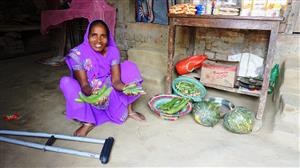
Inclusive organic agriculture farming for all, with approximately half being persons with disabilities
CBM cooperates with local partners across various states of India to train farmers, including people with disabilities, in organic farming and in supporting them by providing community loans for the procurement of equipment and livestock. By 2016 more than 11,000 farmers participated, 4,098 of whom were people with disabilities.
CBM - Christoffel Blind Mission India, India